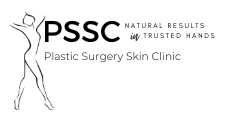The world of cosmetic skin care is one chock full of different remedies, solutions, and treatments. As a result, it’s easy to be overwhelmed by choices. The best way to overcome this choice paralysis is to understand what differentiates your options.
Today, we answer the question, “what does a chemical peel do?”
What is a Chemical Peel
A chemical peel is a cosmetic treatment that improves the skin’s appearance on the face, neck, or hands. The treatment exfoliates the skin revealing a layer of smoother, more youthful looking skin. The chemicals vary depending on the type of peel. There are three basic types:
- Superficial Peel: This treatment uses mild chemicals like AHA (Alpha-hydroxy acid) to gently exfoliate and refresh the outer layer of skin. It’s fast and your skin recovers quickly. As such, it’s sometimes called a lunchtime peel.
- Medium Peel: This treatment uses trichloroacetic or glycolic acid to penetrate the middle and outer layers of skin. It has a more noticeable effect and can even remove damaged cells.
- Deep Peel: True to its name, this chemical peel penetrates deepest, going further into the middle layer of skin. It uses trichloroacetic acid or phenol. Although a deep peel offers the most dramatic changes, it can only be done once.
How it Works
Plastic surgery and skin care clinics can provide chemical peel treatments. They clean your skin and then apply chemicals determined by the depth/type of the peel. The chemicals exfoliate the skin causing it to peel or “blister” off. This reveals a smoother layer of skin underneath.
The result is more youthful, refreshed looking skin.
What Are They Used For?
The uses of a chemical peel are generally cosmetic, and anti-ageing is the most popular goal. However, there are a few different uses.
Anti-Ageing
A chemical peel is a good approach to managing some of the sure signs of ageing. A peel reduces the appearance of wrinkles, fine lines, age spots, and sun damage.
Acne/Acne Scars
Ageing skin is not the only reason to opt for a chemical peel. It can also help to remove or reduce the appearance of acne and acne scars.
Precancerous Growths
Some precancerous growth, such as actinic keratosis, can be removed with a medium peel. A plastic surgeon can determine whether this is the best approach for you and your skin.
Is It Safe?
When performed by a professional, chemical peels are safe. However, there are potential risks, especially with deeper peels. The most common side effect is redness, which should fade during the healing process. As well, your skin is temporarily more sensitive to the sun. So wear sunscreen and limiting exposure.
In rarer instances, there is potential for scarring, changes in pigmentation, or infection. Your doctor can help identify your risk factors to minimize these risks.
For a deep peel, phenol can affect your heart, kidney or liver if overexposed. Skincare clinics generally perform these peels in short intervals to reduce your exposure.
Generally, it is best to avoid a chemical peel if you have:
- Used isotretinoin (common in acne medication) in the past 6 months
- history of keloids
- An abnormal skin pigmentation
- Frequent cold sores
- Dark complexion
Fortunately, if you are at risk for complications there are alternatives to chemical peels. Skin resurfacing alternatives like fractional lasers can help reduce the appearance of age spots and wrinkles. And BroadBand Light can provide a number of anti-ageing benefits.
Why Should I See a Plastic Surgeon Instead of At-Home Exfoliants?
You should always go see a professional when planning a chemical peel. This keeps you safe and garners the best results. At a cosmetic skin care clinic, a doctor can identify risk factors as well as determining what chemicals and doses will provide the results you desire.
At-home exfoliants are generally only available in a milder grade. These mild treatments may not get you the results you want. And doing multiple mild treatments may only serve to irritate your skin.
Trying to use medium or deep chemical peels on your own can result in damaging or scarring your skin. A plastic surgeon leverages their years of training and experience to determine the right dose and application to minimize risks and maximize results.
As well, if they determine that chemical peels are not the right approach for your skin, they can recommend a host of safe and effective skin rejuvenation procedures for you.
Newmarket Skin Rejuvenation Clinic
For chemical peels and skin rejuvenation treatments, Newmarket puts its trust in Plastic Surgery Skin Clinic. Our team of experienced and respected plastic surgeons provide individual care and specialization to give you the best cosmetic results.
Book a skin rejuvenation consultation today!

